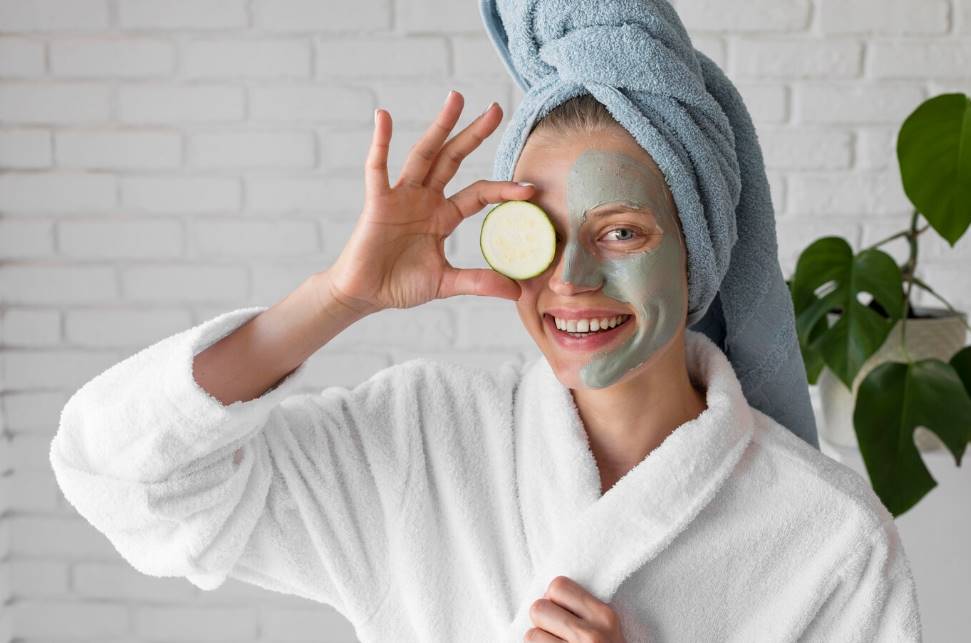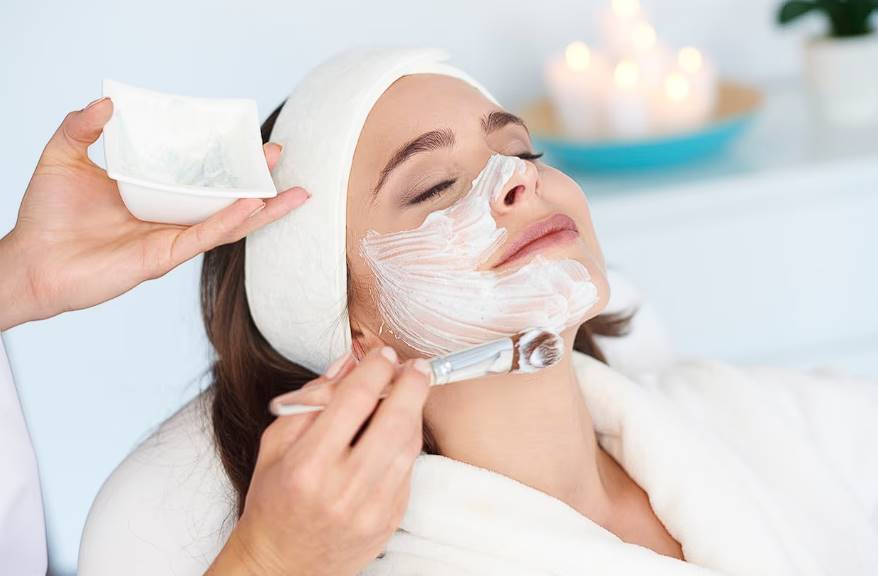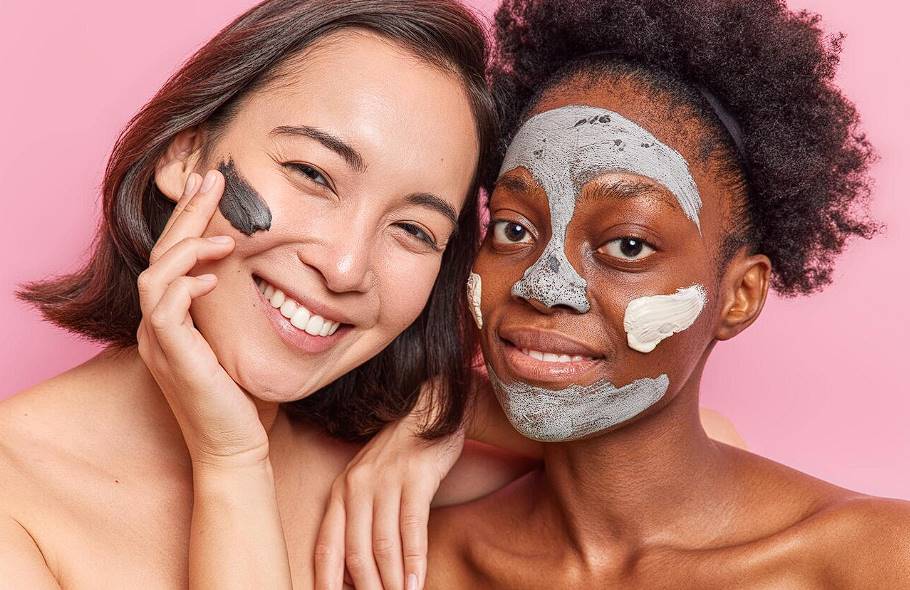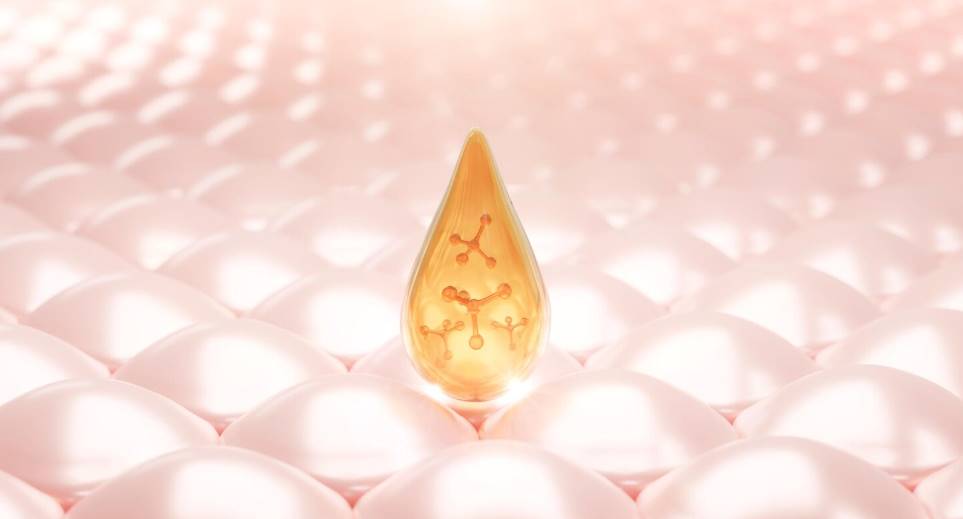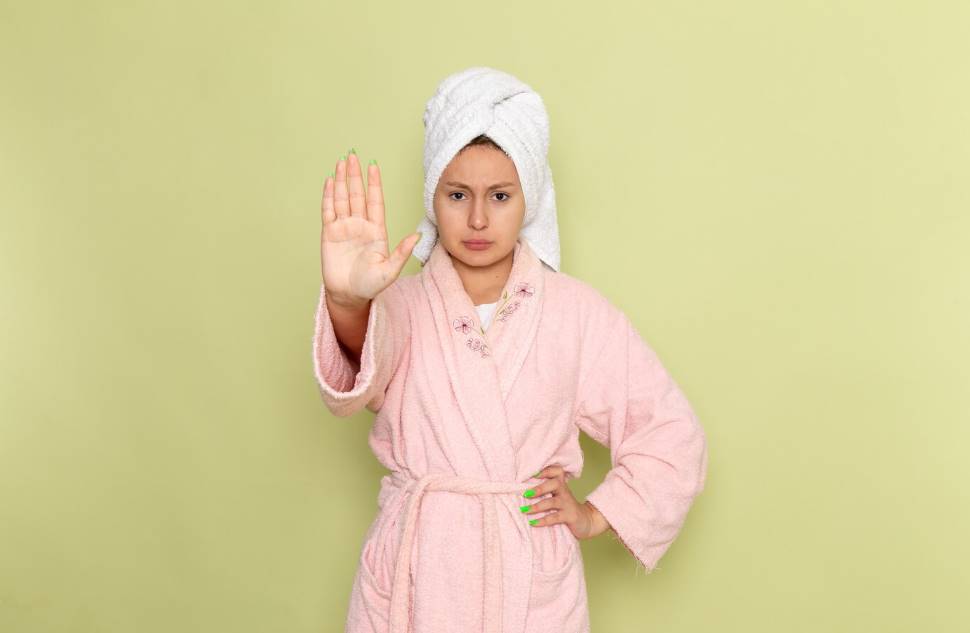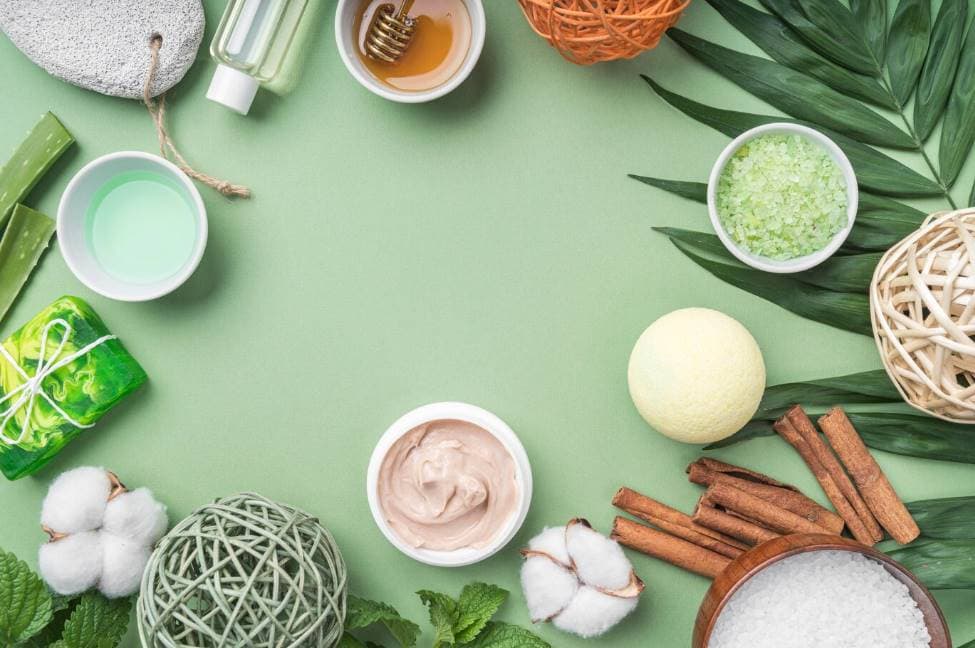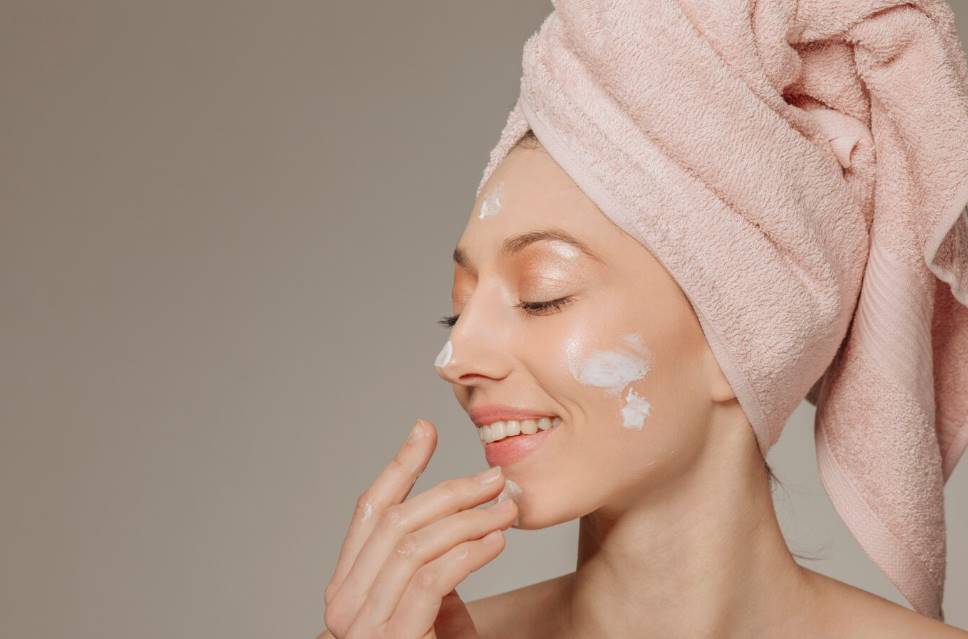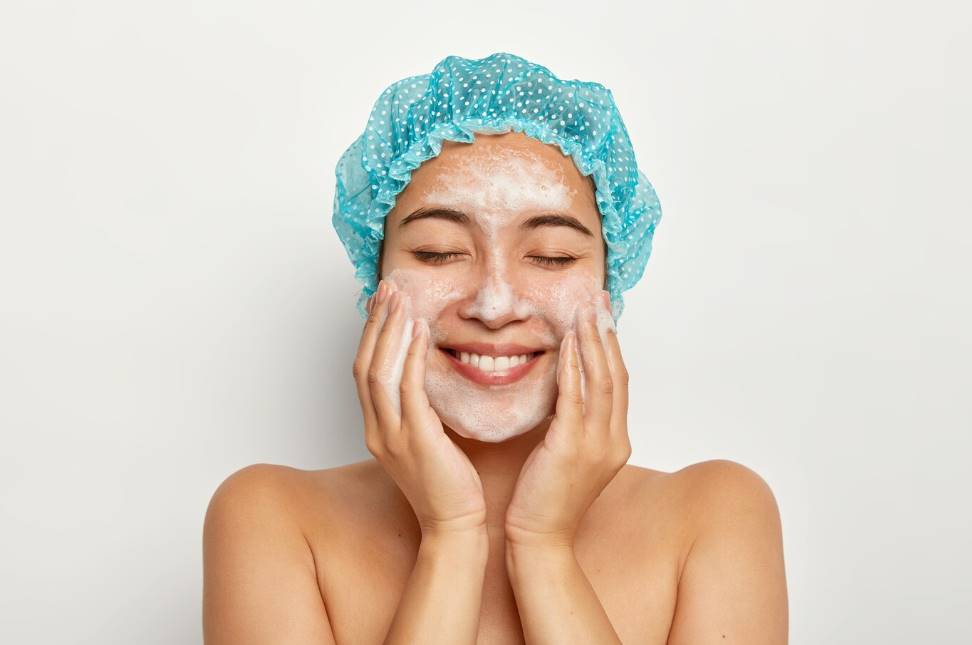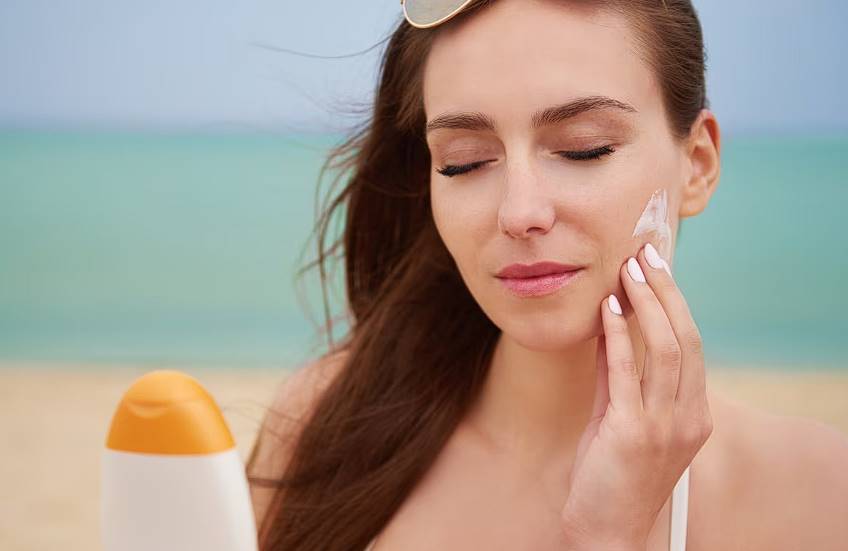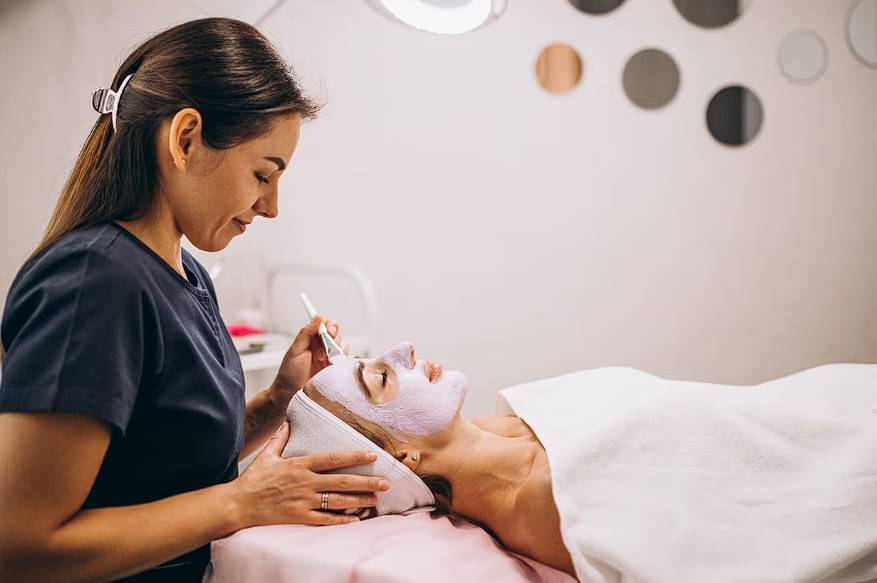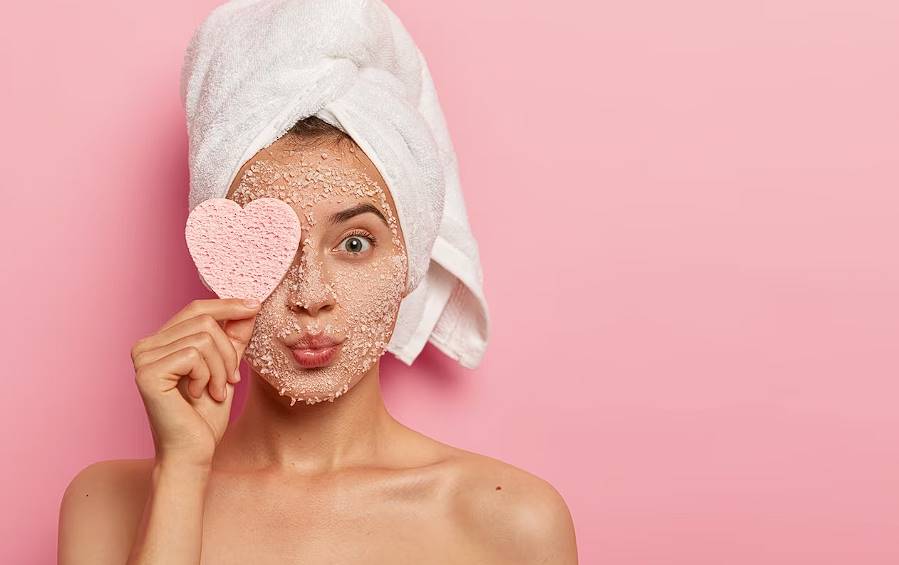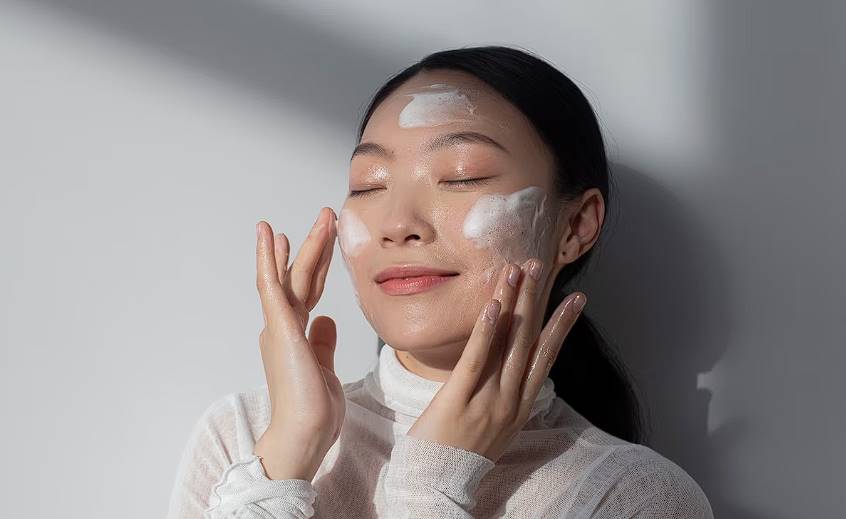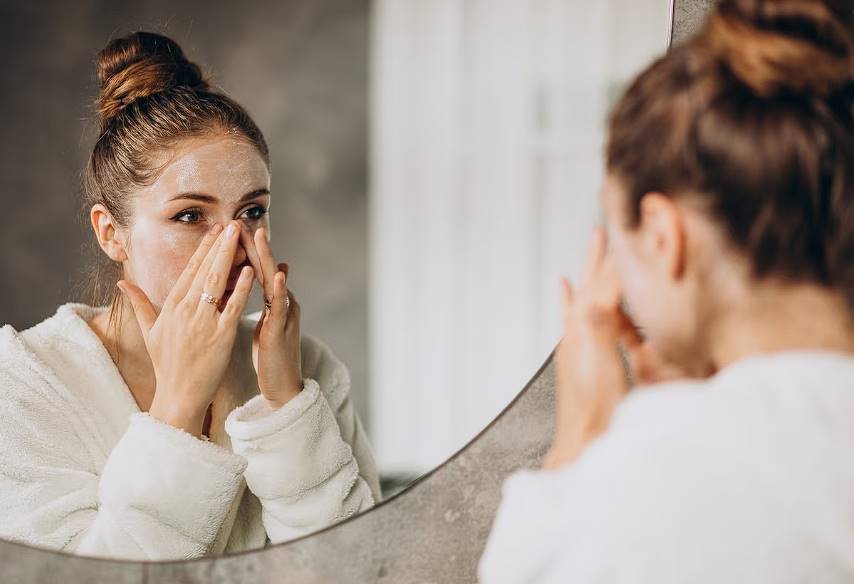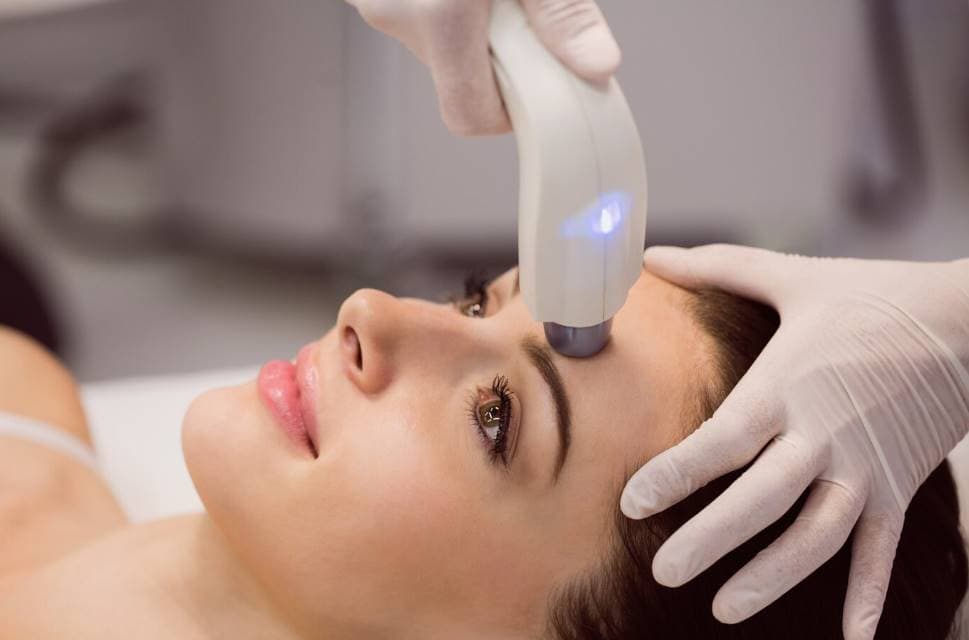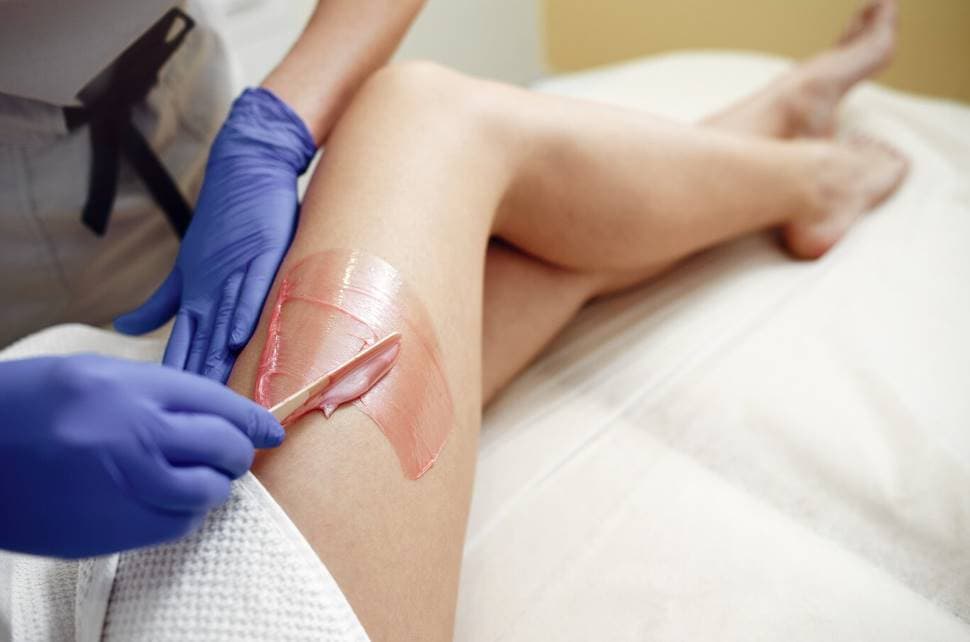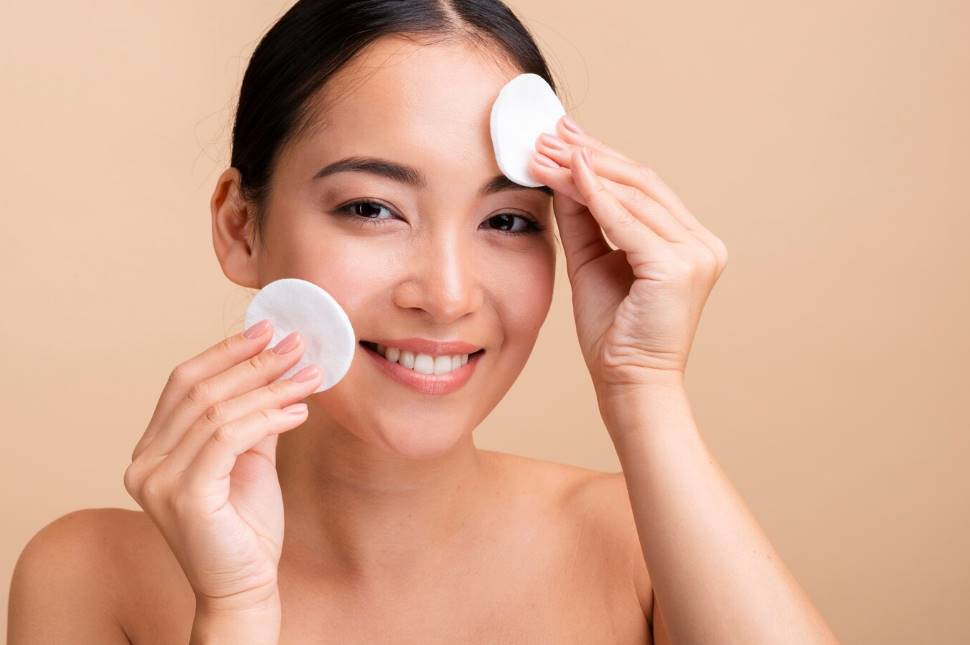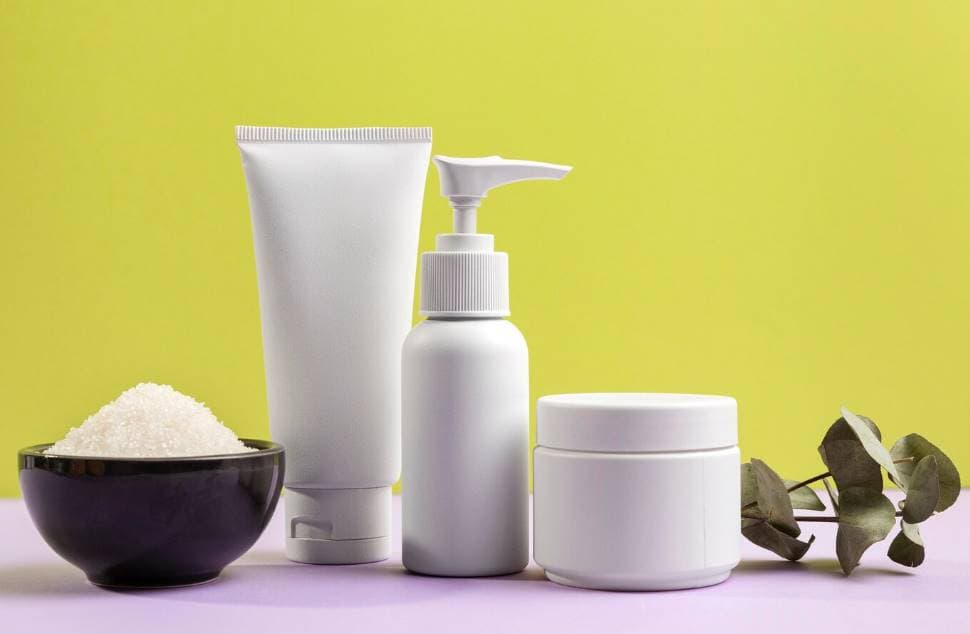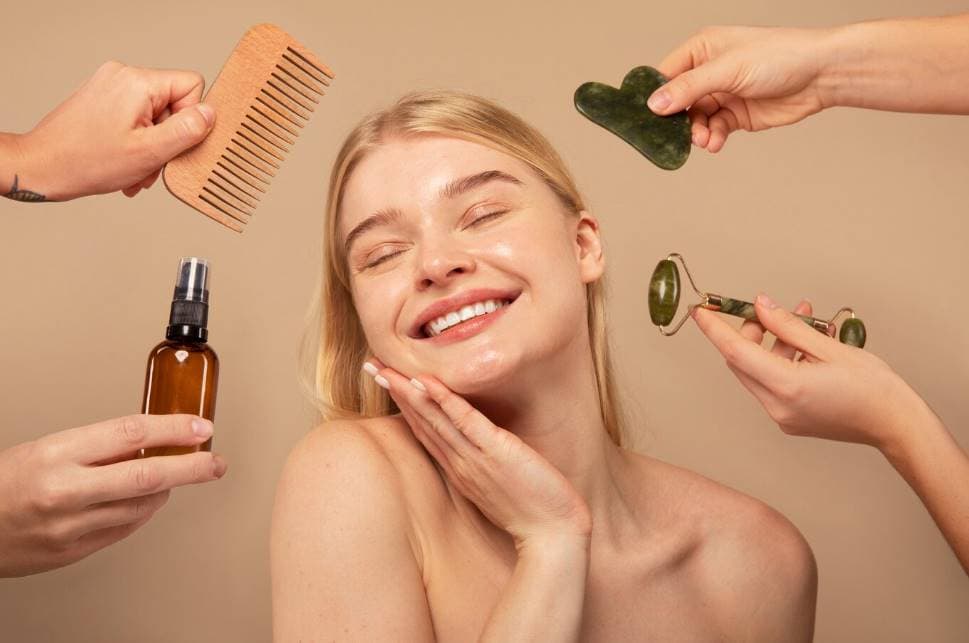However, oily skin is characterised by an overabundance of sebum production. If you have oily skin and regularly experience shine, a feeling that an oil slick has reached your face by the end of the day, or a slight buildup of oil across your nose and forehead, you may want to consider adopting a skincare routine specifically designed for oily skin. Indeed, there are a variety of elements that influence the optimal method for caring for your skin, such as your age (someone in their 30s may need a different routine than someone in their 60s), gender, and sexual orientation.
Do you need further justification to make your oily skin a daily concern? Oily skin is prone to acne because of the overproduction of oil (sebum). It's important to remember, though, that you're not alone if you're dealing with acne. According to studies, acne is the most common skin disorder, affecting millions of people worldwide.
Good skincare products may keep oily skin clear and healthy, and certain formulations may even reduce oil production. Keep reading to find out what steps make up a great routine for oily skin.
What Leads To Oily Skin?

Having oily skin is hereditary and linked to the size and function of the oil glands found around hair follicles. Therefore, greater oil glands may be present in people with thicker hair. Something else that can affect your skin's oil production? Hormones. This is why oily skin and the acne it causes tend to flare up throughout puberty and, for women, right before their periods.
It's time to put together the best skincare routine for oily skin, and it's easier than it sounds now that you know what causes oiliness. Less is more when it comes to oily skin. "If you have oily skin, piling on the makeup is not a good idea. It can lead to acne breakout by blocking your pores if you don't.
The Dos And Don'ts Of The Best Products For Oily Skin
Do's: Tips On How To Keep Oily Skin Under Control
There are a few things to remember while shopping for skincare products if you have oily skin.
Lightweight Texture
Choosing a product's texture is essential when you have oily skin. Gels and oil-free liquids are ideal because they don't weigh the skin down or clog pores. Products of this type soak rapidly and effortlessly, leaving behind a matte finish that lasts all day. Lightweight product use not only aids in the control of excess oil but also helps prevent breakouts and ultimately leads to healthier skin.
Search for ingredients that aid in regulating the production of oil
Look for substances that can control sebum production and minimise pore size. Our top picks are as follows:
Salicylic Acid: Acne-prone and oily skin types can benefit from this beta-hydroxy acid because of its ability to unclog pores, control oil production, and calm inflammation.
Niacinamide: This vitamin B3 derivative is lauded for its capacity to control sebum production, strengthen the skin's protective barrier, and lessen the visibility of pores and skin discolouration.
Tea Tree Oil: Acne and greasy skin can be effectively treated with this natural essential oil due to its antibacterial and anti-inflammatory characteristics.
Zinc: This mineral controls oil production, calms inflammation, and helps skin recover. It also contains antibacterial characteristics that make it useful for warding off germs and other nasties.
Aloe Vera: This all-natural component contains anti-inflammatory characteristics, which calm aggravated skin and lessen redness. It improves a healthier, more balanced complexion by controlling oil production.
Clay: Masks and cleansers formulated for oily skin benefit from this component due to their ability to draw excess sebum and other pollutants from the skin.
Alpha-Hydroxy Acids (AHAs): In addition to reducing fine lines, oiliness, and wrinkles, the skin's texture and look can also benefit from these acids' exfoliating and cell-turnover effects.
Regularly Moisturise
People with oily skin still need to moisturise, as contradictory as that may sound. Although oily skin may appear well moisturised, this is not the case. Overcompensating for its dryness, oily skin may produce even more oil. The skin's natural oil production can be kept in check, and breakouts can be avoided with regular moisturising. People with oily skin often experience irritation and redness. However, moisturisers containing hyaluronic acid and niacinamide can help alleviate these issues.
Sun Protection
All skin types, especially oily skin, should take precautions against sun damage by regularly applying a broad-spectrum sunscreen. Choose a sunscreen that isn't too heavy and won't clog your pores.
Don'ts: The Big No For People With Oily Skin
Many factors contribute to the development of oily skin. Heavy creams will cause your skin to produce even more oil, while comedogenic substances will turn oily skin into acne in days. The sins you must avoid are as follows.
Using Comedogenic Ingredients
Ingredients with comedogenic potential can clog pores and lead to acne. Cocoa butter, coconut oil, and lanolin are examples of lipid-based oils commonly found in these products, and they can function as a barrier on the skin, keeping debris, sebum, and bacteria inside pores. People with oily skin have a greater oil production rate, making them more susceptible to outbreaks from comedogenic substances.
Applying Heavy Oils And Creams
Pores can become blocked by debris and bacteria if you use a lot of heavy oils and creams. This can exacerbate acne problems, especially for those with naturally oily skin and prone to outbreaks. Furthermore, oily skin should avoid creamy formulas and thick moisturisers because they can be overly heavy and leave a greasy residue that accentuates oiliness.
Irritating And Harsh Ingredients
Parabens, sulphates, perfumes, and strong alcohols can remove the skin's natural oils and should be avoided by those with oily skin. Parabens, a type of preservative, have been linked to endocrine disruption and irritation, and perfumes have been linked to inflammation and allergic reactions. Detergents containing sulphates are particularly abrasive, and they can cause the skin to lose its natural moisture barrier and become dehydrated. Skin can become dry and tight by prolonged exposure to harsh alcohols such as SD Alcohol 40-B or Ethanol. This guideline is valid for those with oily skin but applies to those with dry and sensitive skin.
An Easy-To-Follow Skin Care Regimen For Oily Skin
Cleanse
Face washing twice a day is recommended. The day's dirt and oil can be washed away with a good cleansing before bed. No matter how clean your face feels in the morning, it would help if you still washed it. While you sleep, your skin cells die off and natural oils are created. The result may be an increase in oil production and the appearance of acne.
It would help if you washed with a product formulated for oily skin. To help get rid of excess sebum (oil) from the skin's pores, use a mild salicylic acid cleanser.
Exfoliate
Exfoliation is a cool technique to unclog pores from dirt, oil, and dead skin cells. A chemical exfoliant is what an expert suggests. Dead skin can be removed with the help of a chemical exfoliator, which often contains an active substance like alpha hydroxy acid (AHA) or beta hydroxy acid (BHA). Glycolic acid is one of the alpha hydroxy acids (AHAs) recommended for oily skin. BHAs, which comprise salicylic acid, are often recommended for oily skin.
Exfoliating should be done no more than twice weekly to avoid irritation. Dry, red, or irritated skin might result from excessive exfoliation. Exfoliating at night would help because some of the components can increase your susceptibility to sunburn.
Apply Treatment
Retinol's ability to stimulate cell turnover makes it an excellent wrinkle treatment that improves skin texture appearance. Retinol has dual benefits: it reduces the appearance of pores while treating acne. Overuse of any product containing an active ingredient (such as acids or Retinol) can lead to discomfort. So, no more than once daily (sometimes less) is recommended. Since these ingredients can cause photosensitivity, they are best used at night.
You may find more success with an acne treatment if you have oily skin. Acne can be banished using products containing salicylic acid, sulphur, or benzoyl peroxide. To achieve your #SkinGoals, conversing with your dermatologist is essential. Depending on the severity of your skin problem, a stronger prescription treatment may be warranted rather than an over-the-counter remedy.
Serums
Although serums aren't required for any face care routine, they can do wonders for oily, acne-prone, and mixed skin. These solutions are often water-based, so they won't clog your pores or leave your skin feeling greasy. They aid in maintaining a healthy sebum level and skin that is neither overly dry nor oily. Serums often include anti-inflammatory and acne-fighting substances, including galactomyces, tea tree oil, and propolis.
Moisturize
You may be forgiven for thinking that hydrating greasy skin is bad. However, in the real world, it is essential to care for oily skin. People with oily skin often prefer gel moisturisers. Niacinamide-containing moisturisers can control sebum production. Moisturisers formulated for oily skin are typically safe for use on acne-prone skin. If you're going to use a gel, lotion, or cream, make sure it is:
- oil-free
- water-based
- free from harsh chemicals or fragrances
- noncomedogenic
- lightweight
Apply SPF
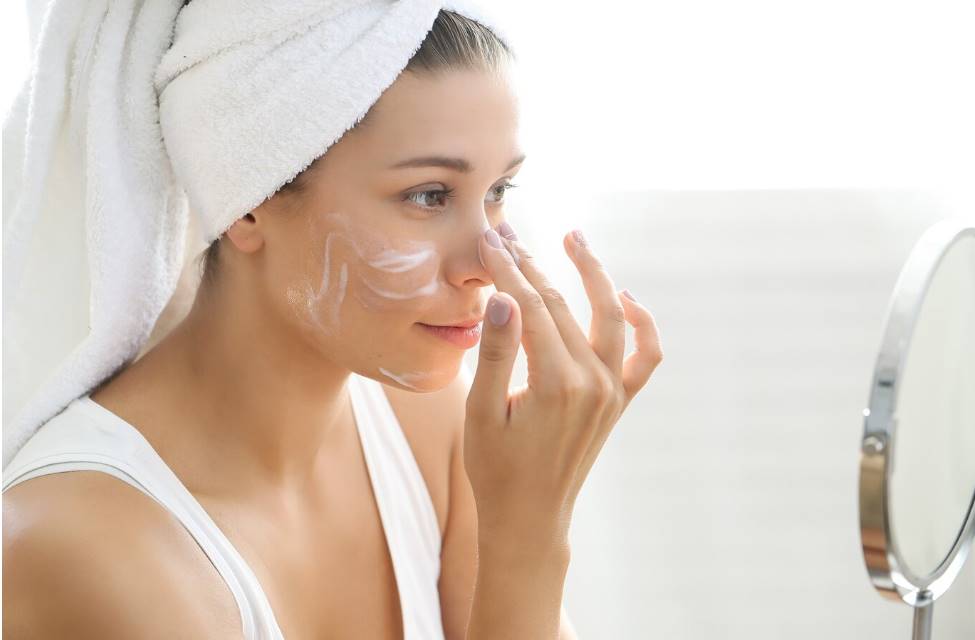
Protecting your oily skin from the sun is the final step in a successful skincare programme. Even on cloudy days or when staying indoors, people of all skin tones should always start the day by applying sunscreen. Prolonged exposure to sunlight, according to the aforementioned studies, might cause skin dryness, which may increase sebum production. Sunscreen with a high sun protection factor (SPF) is recommended by the FDA to be used daily.
To protect yourself from the sun, put on a thick layer of sunscreen 15 minutes before leaving the house and reapply it every two hours. It is also important to restrict time spent in the sun, particularly between 10 a.m. and 2 p.m., and to wear protective clothing like long sleeves, long pants, hats, and sunglasses. We advise those with oily skin to seek sunscreens and moisturisers formulated in collaboration with dermatologists that are non-comedogenic, oil-free, and non-greasy.
Additional Oily Skin Care Tips
A good foundation is a gentle skin care programme. However, you may need to take further action to eliminate oil from your skin.
Blotting Papers
Use blotting paper to keep shine at bay and oil under control all day long. Maintain brief contact between the paper and your skin. Apply it all over your face, but concentrate on your forehead and nose. Seeing the paper soak up the oil is a gratifying sight.
Cosmetic Remover
Makeup might make cleanser ineffective. Use a makeup remover that doesn't include oil before washing your face.
Professional Medical Care
Most cases can be treated successfully without medical intervention. On the other hand, blue light may be beneficial for oily skin. Blue light treatment is effective in treating acne in some research trials. However, additional study is required to prove the integrity of this. Accutane (isotretinoin) is excellent at reducing oil production and the size of oil glands. Remember, though, it's typically only prescribed for extremely severe cases of acne.
Cleanse After Perspiring
According to experts, you should always clean your face after working up a sweat. If you need more time, this becomes even more crucial. Cleansing aid after an exercise or time spent in hot weather; removes oil, filth, and sweat.
Conclusion
Oily skin is characterized by an overproduction of sebum, which can lead to acne and other skin issues. Factors such as age, gender, and sexual orientation influence the optimal skincare routine for oily skin. Oily skin is hereditary and can be influenced by factors like hair thickness, hormones, and sebum production.
To maintain healthy skin, it is essential to choose lightweight products that don't weigh down or clog pores. Ingredients that regulate oil production include salicylic acid, niacinamide, tea tree oil, zinc, aloe vera, clay, and alpha-hydroxy acids (AHAs). Regularly moisturizing is crucial for oily skin, as it helps control sebum production and minimize pore size. Sun protection is also important, especially for oily skin, with broad-spectrum sunscreen being the best option.
Don't use comedogenic ingredients, heavy oils and creams, irritating and harsh ingredients, or heavy creams that can clog pores and exacerbate acne problems. Avoid creamy formulas and thick moisturisers, as they can be overly heavy and leave a greasy residue. Avoid using parabens, sulphates, perfumes, and strong alcohols, as they can remove the skin's natural oils and cause dryness.
In summary, a well-designed skincare routine for oily skin involves a combination of light texture, ingredients that regulate oil production, regular moisturization, and sun protection. Avoiding heavy creams and comedogenic substances can help prevent breakouts and maintain healthy skin.
To effectively treat oily skin, follow these steps:
1. Cleanse twice a day, preferably before bed, to remove dirt and oil. Use a product formulated for oily skin, such as a mild salicylic acid cleanser.
2. Exfoliate your skin to remove dirt, oil, and dead skin cells. Use chemical exfoliators, such as alpha hydroxy acid (AHA) or beta hydroxy acid (BHA), to remove dead skin cells. Exfoliate no more than twice weekly to avoid irritation.
3. Apply a treatment, such as Retinol, which stimulates cell turnover and reduces pores while treating acne. Use Retinol at night to avoid photosensitivity.
4. Use a serum, which is often water-based and contains anti-inflammatory and acne-fighting substances. Moisturize your skin with gel, lotion, or cream, ensuring they are oil-free, water-based, noncomedogenic, and lightweight.
5. Protect your skin from the sun by applying sunscreen with a high sun protection factor (SPF) daily. Apply sunscreen 15 minutes before leaving the house and reapply every two hours. Restrict sun exposure and wear protective clothing.
Additional skin care tips include using blotting paper to keep shine and oil under control. Use a makeup remover that doesn't contain oil before washing your face.
Professional medical care, such as blue light treatment, is recommended for severe acne cases. Accutane is effective in reducing oil production and oil gland size, but is typically prescribed for severe cases. Cleanse your face after sweating to remove oil, dirt, and sweat.
Content Summary
- Oily skin is marked by excessive sebum production.
- People with oily skin often feel as if their face is coated with oil by day's end.
- A skincare routine tailored for oily skin is essential for those who experience these symptoms.
- Age, gender, and sexual orientation influence the ideal skincare method.
- Oily skin can lead to acne due to overproduction of sebum.
- Acne is the most widespread skin disorder globally.
- Effective skincare products can manage oily skin and might reduce oil production.
- Oily skin has genetic links and is associated with the size and activity of oil glands.
- People with thicker hair might have larger oil glands.
- Hormonal changes can cause oiliness, evident during puberty and women's menstrual cycles.
- Makeup can exacerbate oily skin issues by clogging pores.
- For oily skin, lightweight products like gels and oil-free liquids are recommended.
- These products are absorbed quickly, leaving a matte finish.
- It's essential to pick ingredients that regulate oil production.
- Salicylic Acid is a beneficial ingredient due to its pore-unclogging and oil-controlling properties.
- Niacinamide strengthens the skin's barrier and controls sebum production.
- Tea Tree Oil is natural and treats oily skin with its antibacterial properties.
- Zinc controls oil and is beneficial for its antibacterial qualities.
- Aloe Vera regulates oil production and calms inflammation.
- Clay in masks and cleansers can absorb excess oil.
- Alpha-Hydroxy Acids enhance the skin's texture and appearance.
- Even oily skin requires regular moisturising to prevent overproduction of oil.
- Moisturisers with hyaluronic acid and niacinamide can address irritation in oily skin.
- Sun protection is crucial, and oily skin individuals should choose non-clogging sunscreens.
- Ingredients with comedogenic properties, like cocoa butter and coconut oil, should be avoided.
- Heavy creams and oils can further exacerbate oily skin and lead to acne.
- Ingredients such as parabens and sulphates can strip natural oils, leading to more oil production.
- Perfumes can cause inflammation and allergic reactions.
- Harsh alcohols can lead to skin dehydration.
- A good skincare routine involves cleansing the face twice daily.
- Morning cleansing is essential to remove dead skin cells and oils produced overnight.
- Oily skin benefits from a mild salicylic acid cleanser.
- Exfoliation helps in unclogging pores.
- Chemical exfoliants, with active ingredients like AHAs or BHAs, are recommended.
- Glycolic acid is an effective AHA for oily skin.
- Salicylic acid, a BHA, is often suggested for oily skin types.
- Over-exfoliation can lead to irritation; hence, it should be limited to twice a week.
- Retinol enhances skin texture and can treat acne.
- Overusing active ingredients can lead to discomfort.
- For oily skin with acne, treatments containing salicylic acid or benzoyl peroxide can be effective.
- Consulting a dermatologist can provide guidance on appropriate treatments.
- Serums can benefit oily or acne-prone skin.
- They maintain balanced sebum levels and often include anti-inflammatory ingredients.
- Hydrating oily skin is crucial, despite common misconceptions.
- Gel moisturisers are popular among oily skin individuals.
- Niacinamide in moisturisers can regulate sebum production.
- Moisturisers for oily skin should be oil-free, lightweight, and noncomedogenic.
- They should also be free from harsh chemicals or fragrances.
- Water-based products are typically suitable for oily skin.
- It's essential to choose products tailored to the specific needs of oily skin for the best results.
Frequently Asked Questions
The best skincare routine for oily skin. Use a toner that contains salicylic acid, glycolic acid, or lactic acid. Treat your skin with benzoyl peroxide or retinol. Moisturize morning and night with a lightweight moisturizer.
If you have oily skin, you may benefit from a toner that contains salicylic acid. We recommend the Glytone Acne Clearing Toner with 2% Salicylic Acid. This will help to exfoliate and control excess oil.
Avoid: Oil-based moisturizers, including petrolatum, mineral oil, or petroleum. These ingredients can suffocate your oily skin. Heavy creams and lotions: These products are too heavy. Rather than getting absorbed, they'll sit on top of your skin and cause oiliness and clogged pores.
Aloe vera is known for soothing burns and other skin conditions. According to the Mayo Clinic, there's good scientific evidence that it helps treat flaky skin caused by oily patches. Many people use aloe vera to treat oily skin. You can apply a thin layer to your face before bedtime and leave it on until morning.
Using a toner will have the exact opposite effect from what you want and is not a cure for oily skin. If you remove the healthy, natural oil, your skin will produce even more oil. In a nutshell, toners can be good if it suits your skin type, but anything used in excess can be dangerous.
